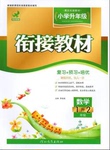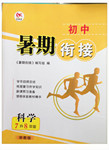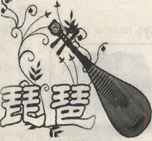题目内容
B. was built
C. has been built
D. is built

 鹰派教辅衔接教材河北教育出版社系列答案
鹰派教辅衔接教材河北教育出版社系列答案 初中暑期衔接系列答案
初中暑期衔接系列答案Here are some other ways to help save resources (资源)for the society:
★Use the other side of the paper.
★Use rechargeable (可再充电的) batteries for your electric toys, MP3 players, cell phones, and cameras.
★ Choose reusable travel cups instead of disposable (一次性的) paper or plastic cups.
★Take your own cloth shopping bags when you go shopping.
★ Drink tap water instead of buying bottled water.
And there are some things you can exchange with your friends, for example, books, toys, even clothes. It's a way for everyone to get something new without spending any money and without throwing many things away.
【小题1】The underlined word "ours" in the passage refers to (指代) _______.
| A.our society | B.our old things |
| C.our life | D.our throwaway things |
| A.buy another new one | B.help toy business develop |
| C.make the family very thankful to us | D.help save resources for the society |
| A.We should buy things that can be reused in our daily life. |
| B.We can exchange some things with others for further use. |
| C.It's good for us to throw away old things and buy new ones. |
| D.We are supposed to give the things we no longer need to our neighbors. |
| A.Try to throw as few old things as we can. |
| B.Use as many disposable things as possible. |
| C.Drink bottled water even though there is tap water around. |
| D.Buy everything we need instead of exchanging them with others. |
Young people and older people don’t always agree. They sometimes have different ideas about living, working and playing. But in one special programme in New York State, adults and teenagers live together in a friendly way.
Each summer 200 teenagers and 50 adults live together for eight weeks as members of a special work group. Everyone works several hours each day. They do so not just to keep busy but to find meaning and enjoyment in work. Some teenagers work in the woods or on the farms near the village. Some learn to make things like tables and chairs and build houses. The adults teach them these skills.
There are several free hours each day. Weekends are free, too. During the free hours some of the teenagers learn photo taking or painting. Others sit around and talk or sing. Each teenager chooses his own way to spend his free time.
When people live together, rules are necessary. In this programme the teenagers and the adults make the rules together. If someone breaks a rule, the problem goes before the whole group. They talk about it and ask, “Why did it happen? What should we do about it?”
One of the teenagers has this to say about his experience, “You stop thinking only about yourself; you learn to think about the group.”
【小题1】In one special programme in New York State, young and older people _______ .
| A.don’t work well together. |
| B.are friendly to one another. |
| C.teach one another new ways of building houses. |
| D.spend eight weeks together, working as farmers.. |
| A.lead a busy life. |
| B.learn new skills of farming; |
| C.get used to the life on the farms |
| D.find value and pleasure in work |
| A.the teenagers don’t have to obey the rules |
| B.the teenagers have to obey the rules the adults make |
| C.the members have no free time on weekends |
| D.the members are not allowed to break the rules they make together |
| A.unpleasant | B.tiring | C.helpful | D.boring |
| A.The rules of living together |
| B.Life in New York State |
| C.Teenagers in the special group |
| D.Free hours in the special work group |
Young people and older people don’t always agree. They sometimes have different ideas about living, working and playing. But in one special programme in New York State, adults and teenagers live together in a friendly way.
Each summer 200 teenagers and 50 adults live together for eight weeks as members of a special work group. Everyone works several hours each day. They do so not just to keep busy but to find meaning and enjoyment in work. Some teenagers work in the woods or on the farms near the village. Some learn to make things like tables and chairs and build houses. The adults teach them these skills.
There are several free hours each day. Weekends are free, too. During the free hours some of the teenagers learn phototaking or painting. Others sit around and talk or sing. Each teenager chooses his own way to spend his free time.
When people live together, rules are necessary. In this programme the teenagers and the adults make the rules together. If someone breaks a rule, the problem goes before the whole group. They talk about it and ask, “Why did it happen? What should we do about it?”
One of the teenagers has this to say about his experience, “You stop thinking only about yourself, You learn to think about the group.”
【小题1】In one special programme in New York State, young and older people _______ .
| A.don’t work well together. |
| B.are friendly to one another. |
| C.teach one another new ways of building houses. |
| D.spend eight weeks together, working as farmers. |
| A.lead a busy life. | B.learn new skills of farming; |
| C.get used to the life on the farms | D.find value and pleasure in work |
| A.the teenagers don’t have to obey the rules |
| B.the teenagers have to obey the rules the adults make |
| C.the members have no free time on weekends |
| D.the members are not allowed to break the rules they make together |
| A.unpleasant | B.tiring | C.helpful | D.boring |
| A.The rules of living together |
| B.Life in New York State |
| C.Teenagers in the special group |
| D.Free hours in the special work group |
Young people and older people don’t always agree. They sometimes have different ideas about living, working and playing. But in one special programme in New York State, adults and teenagers live together in a friendly way.
Each summer 200 teenagers and 50 adults live together for eight weeks as members of a special work group. Everyone works several hours each day. They do so not just to keep busy but to find meaning and enjoyment in work. Some teenagers work in the woods or on the farms near the village. Some learn to make things like tables and chairs and build houses. The adults teach them these skills.
There are several free hours each day. Weekends are free, too. During the free hours some of the teenagers learn phototaking or painting. Others sit around and talk or sing. Each teenager chooses his own way to spend his free time.
When people live together, rules are necessary. In this programme the teenagers and the adults make the rules together. If someone breaks a rule, the problem goes before the whole group. They talk about it and ask, “Why did it happen? What should we do about it?”
One of the teenagers has this to say about his experience, “You stop thinking only about yourself, You learn to think about the group.”
1.In one special programme in New York State, young and older people _______ .
|
A.don’t work well together. |
|
B.are friendly to one another. |
|
C.teach one another new ways of building houses. |
|
D.spend eight weeks together, working as farmers. |
2. All the members work some time every day mainly to _______ .
|
A.lead a busy life. |
B.learn new skills of farming; |
|
C.get used to the life on the farms |
D.find value and pleasure in work |
3. Living together, _________ .
|
A.the teenagers don’t have to obey the rules |
|
B.the teenagers have to obey the rules the adults make |
|
C.the members have no free time on weekends |
|
D.the members are not allowed to break the rules they make together |
4. The last programme shows that the teenager thinks his experience in the programme is ____ .
|
A.unpleasant |
B.tiring |
C.helpful |
D.boring |
5.The best title for the passage is __________ .
|
A.The rules of living together |
|
B.Life in New York State |
|
C.Teenagers in the special group |
|
D.Free hours in the special work group |
